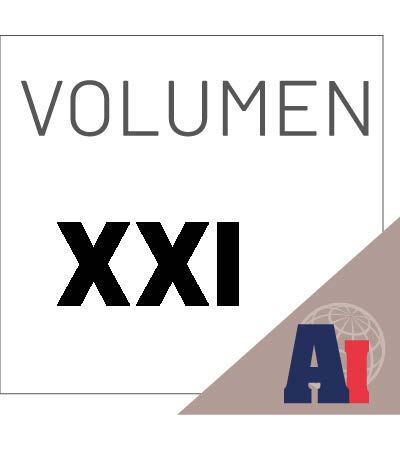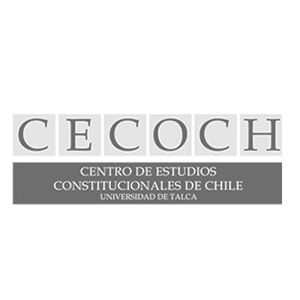Hacia una coordinación efectiva entre regímenes especializados para garantizar una interpretación armoniosa en el derecho internacional público moderno
El derecho internacional moderno se caracteriza, en gran parte, por sus regímenes especializados. El derecho comercial internacional, la protección internacional de derechos humanos y el derecho ambiental internacional son sólo algunos de los ejemplos más importantes de áreas aisladas en el derecho internacional, mismas que se caracterizan por su reclamo de hegemonía. El presente artículo analiza la interacción entre los diferentes regímenes, concluyendo así que el derecho internacional actual carece de las capacidades para coordinar de manera efectiva tales regímenes. En este mismo sentido, argumentaremos que resulta imprescindible una necesaria e imperiosa coordinación entre los diferentes mecanismos de solución de controversias. Una coordinación efectiva entre regímenes especializados se podrá llevar a cabo mediante reglas como el forum non conveniens del common law, y no a través de criterios de secuencia temporal, como lo establece la Convención de Viena sobre el Derecho de los Tratados.
Detalles del artículo
Uso de licencias Creative Commons (CC)
A partir del volumen 25, todos los textos publicados por el Anuario Mexicano de Derecho Internacional sin excepción, se distribuyen amparados con la licencia CC BY-NC 4.0 Internacional, que permite a terceros utilizar lo publicado, siempre que mencionen la autoría del trabajo y la primera publicación en esta revista.
Del volumen I al XIV de Anuario Mexicano de Derecho Internacional la licencia utilizada era Atribución-NoComercial-SinDerivadas 4.0 Internacional
Derechos de autoras o autores
De acuerdo con la legislación vigente de derechos de autor el Anuario Mexicano de Derecho Internacional reconoce y respeta el derecho moral de las autoras o autores, así como la titularidad del derecho patrimonial, el cual será transferido —de forma no exclusiva— al Anuario para permitir su difusión legal en acceso abierto.
Autoras o autores pueden realizar otros acuerdos contractuales independientes y adicionales para la distribución no exclusiva de la versión del artículo publicado en el Anuario Mexicano de Derecho Internacional (por ejemplo, incluirlo en un repositorio institucional o darlo a conocer en otros medios en papel o electrónicos), siempre que se indique clara y explícitamente que el trabajo se publicó por primera vez en el Anuario.
Para todo lo anterior, deben remitir la carta de transmisión de derechos patrimoniales de la primera publicación, debidamente requisitada y firmada por las autoras o autores. Este formato debe ser remitido en PDF a través de la plataforma OJS.
Derechos de lectoras o lectores
Con base en los principios de acceso abierto las lectoras o lectores de la revista tienen derecho a la libre lectura, impresión y distribución de los contenidos del Anuario por cualquier medio, de manera inmediata a la publicación en línea de los contenidos. El único requisito para esto es que siempre se indique clara y explícitamente que el trabajo se publicó por primera vez en el Anuario Mexicano de Derecho Internacional y se cite de manera correcta la fuente incluyendo el DOI correspondiente.
Citas
Aust, Anthony, “Vienna Convention on the Law of Treaties (1969)”, en Wolfrum, Rüdiger (comp.), The Max Planck Encyclopedia of Public International Law, Oxford, Oxford University Press, 2012, vol. 10.
Böckenförde, Markus, “Zwischen Sein und Wollen – Über den Einfluss umweltvölkerrechtlicher Verträge im Rahmen eines WTO-Streitbeilegungsverfahrens”, Zeitschrift für allgemeines öffentliches Recht und Völkerrecht, vol. 63, 2003.
Bradford, Anu, “Regime Theory”, en Wolfrum, Rüdiger (comp.), The Max Planck Encyclopedia of Public International Law, Oxford, Oxford University Press, 2012, vol. 8.
Brand, Ronald A., “Forum Non Conveniens”, en Wolfrum, Rüdiger (comp.), The Max Planck Encyclopedia of Public International Law, Oxford, Oxford University Press, 2012, vol. 4.
Churchill, Robin R., “MOX Plant Arbitration and Cases”, en Wolfrum, Rüdiger (comp.), The Max Planck Encyclopedia of Public International Law, Oxford, Oxford University Press, 2012, vol. 7.
Comisión de Derecho Internacional, “Fragmentation of International Law: Difficulties Arising from the Diversification and Expansion of International Law”, Report of the Study Group of the International Law Commission, A/CN.4/L.682, 13 de abril de 2006.
Cottier, Thomas y Müller, Jörg Paul, “Estoppel”, en Wolfrum, Rüdiger (comp.), The Max Planck Encyclopedia of Public International Law, Oxford, Oxford University Press, 2012, vol. 3.
Cuniberti, Gilles, “Parallel Litigation and Foreign Investment Dispute Set-tlement”, ICSID Review Foreign Investment Law Journal, vol. 21, 2006.
Fassbender, Bardo, “The United Nations Charter as Constitution of the International Community”, Columbia Journal of Transnational Law, vol. 36, 1998.
Fischer-Lescano, Andreas y Teubner, Gunther, “Regime-Collisions: The Vain Search for Legal Unity in the Fragmentation of Global Law”, Michigan Journal of International Law, vol. 25, 2004.
Francioni, Francesco, “Equity in International Law”, en Wolfrum, Rüdiger (comp.), The Max Planck Encyclopedia of Public International Law, Oxford, Oxford University Press, 2012, vol. 3.
Gantz, David A., “Dispute Settlement under the NAFTA and the WTO: Choice of Forum Opportunities and Risks for the NAFTA Parties”, American University International Law Review, vol. 14, 1998.
Hafner, Gerhard, “Pros and Cons Ensuing from Fragmentation of International Law”, Michigan Journal of International Law, vol. 25, 2004.
Harrison, James, The Human Rights Impact of the World Trade Organisation, Portland, 2007.
Joseph, Sarah, Blame it on the WTO?: A Human Rights Critique, Oxford, Oxford University Press, 2011.
Koskenniemi, Martti y Leino, Päivi, “Fragmentation of International Law? Postmodern Anxieties”, Leiden Journal of International Law, vol. 15, núm. 3, 2002.
Kuo, Ming-Sung, “Between Fragmentation and Unity: The Uneasy Relationship between Global Administrative Law and Global Constitutionalism”, San Diego International Law Journal, vol. 10, 2008.
Lixinski, Lucas, “Treaty Interpretation by the Inter-American Court of Human Rights: Expansionism at the Service of the Unity of International Law”, European Journal of International Law, vol. 21, núm. 3, 2010.
Marceau, Gabrielle et al., “The WTO’s Influence on Other Dispute Settlement Mechanisms: A Lighthouse in the Storm of Fragmentation”, Journal of World Trade, vol. 47, núm. 3, 2013.
Orakhelashivili, Alexander, “Article 30 Convention of 1969”, en Corten, Olivier y Klein, Pierre (comps.), The Vienna Conventions on the Law of Treaties: A Commentary, Oxford, Oxford University Press, 2011.
Pauwelyn, Joost, “Bridging Fragmentation and Unity: International Law as a Universe of Inter-Connected Islands”, Michigan Journal of International Law, vol. 25, 2003.
Pauwelyn, Joost, “The Role of Public International Law in the WTO: How Far Can We Go?”, The American Journal of International Law, vol. 95, núm. 3, 2001.
Pauwelyn, Joost y Salles, Luiz Eduardo, “Forum Shopping before International Tribunals: (Real) Concerns, (Im)Possible Solutions”, Cornell International Law Journal, vol. 42, 2009.
Petersmann, Ernst-Ulrich, The GATT/WTO Dispute Settlement System: International Law, International Organizations and Dispute Settlement, Leiden, Martinus Nijhoff, 1997.
Posner, Eric A., “The Decline of the International Court of Justice”, Olin Program in Law and Economics Working Paper No. 233, 2004.
Reinisch, August, “The Use and Limits of Res Judicata and Lis Pendens as Procedural Tools to Avoid Conflicting Dispute Settlement Outcomes”, The Law and Practice of International Courts and Tribunals, vol. 3, núm. 1, 2004.
Scheinin, Martin, “The ICJ and the Individual”, International Community Law Review, vol. 9, núm. 2, 2007.
Shany, Yuval, The Competing Jurisdictions of International Courts and Tribunals, Oxford, Oxford University Press, 2003.
Shany, Yuval, “The First MOX Plant Award: The Need to Harmonize Competing Environmental Regimes and Dispute Settlement Procedures”, Leiden Journal of International Law, vol. 17, núm. 4, 2004.
Simma, Bruno y Pulkowski, Dirk, “Of Planets and the Universe: Self-Contained Regimes in International Law”, European Journal of International Law, vol. 17, núm. 3, 2006.
Van Damme, Isabelle, Treaty Interpretation by the WTO Appellate Body, Oxford- Nueva York, Oxford University Press, 2009.
Vranes, Erich, “Lex superior, lex specialis, lex posterior – Zur Rechtsnatur der «Konfliktlösungsregeln»”, Zeitschrift für ausländisches öffentliches Recht und Völkerrecht, vol. 65, 2005.
Zemanek, Karl, The Legal Foundations of the International System: General Course on Public International Law, Leiden, Martinus Nijhoff, 1997.



































